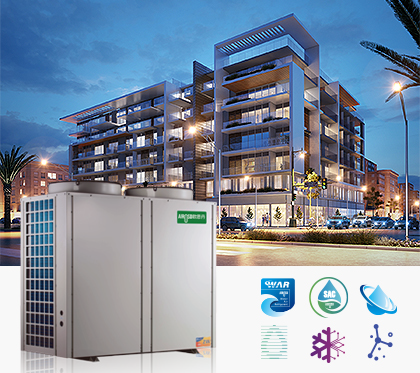Traditional heat pumps have become a popular choice for heating and cooling homes due to their energy efficiency and environmental friendliness. However, like any other technology, they also come with their share of disadvantages. We will explore where traditional heat pumps fall short in this article, helping you to make a informed decision.
High Initial Cost
Investing in a traditional heat pump can be a substantial financial commitment. The initial cost includes not only the purchase of the heat pump unit but also professional installation charges. While these heat pumps offer long-term energy savings, the high upfront expense might be a deterrent for some homeowners, especially those on a limited budget. However, it's essential to consider the potential return on investment through energy efficiency and reduced utility bills over time.

Dependence On Electricity
Traditional heat pumps operate using electricity, which means their efficiency is directly tied to the availability and cost of electricity in a given area. While electricity is widely accessible in most regions, homeowners should be prepared for potential fluctuations in electricity prices, particularly during peak hours. To mitigate the impact of electricity costs, users can explore time-of-use energy plans or consider coupling their heat pump with renewable energy sources like solar panels.
Limited Efficiency In Extreme Cold
One of the significant drawbacks of traditional heat pumps is their reduced efficiency in extremely cold climates. As the outdoor temperature drops, extracting heat from the air becomes more challenging for these systems. Consequently, the heat pump's heating capacity diminishes, and it may struggle to maintain indoor comfort during severe winter conditions. In colder regions, homeowners may need to rely on alternative heating methods to supplement the heat pump's performance.

Commercial Heat Pump Water Heater Manufacturers
Supplementary Heating Required
Due to the limitations in extreme cold, many homeowners opt for supplementary heating solutions to ensure adequate indoor warmth. Electric resistance heaters are commonly used for this purpose. While they can provide immediate heat, they are less energy-efficient than the heat pump itself. Consequently, this supplementary heating can lead to increased energy consumption and higher electricity bills during peak heating periods.
Defrost Cycles And Noise
During the colder months, traditional heat pumps can accumulate ice on their outdoor unit, reducing their efficiency. To counter this, the heat pump activates defrost cycles to melt the ice. While modern heat pumps have been designed to minimize noise during defrost cycles, some homeowners might still find the noise level slightly bothersome. Choosing a heat pump with advanced noise reduction technology can help create a more serene indoor environment.
Environmental Impact Of Refrigerants
Traditional heat pumps utilize refrigerants to transfer heat between the indoor and outdoor units. However, older models may still use refrigerants with a high global warming potential (GWP), which contributes to greenhouse gas emissions and environmental concerns. On the positive side, newer heat pump models now employ more environmentally friendly refrigerants with lower GWPs, aligning with efforts to combat climate change.
Space Requirements
Installation of a traditional heat pump requires ample space for both the outdoor and indoor units. The outdoor unit, in particular, demands sufficient clearance for proper airflow and maintenance. For homeowners with limited outdoor space, finding an appropriate location for the heat pump unit can pose a challenge. Planning the placement carefully can ensure optimal performance and longevity of the heat pump system.

Commercial Heat Pump Manufacturers
Installation Considerations
Installing a traditional heat pump is a complex process that should be undertaken by experienced professionals. Proper installation is crucial for ensuring the heat pump operates efficiently and reliably. Incorrect installation can lead to reduced performance, increased energy consumption, and potential damage to the unit. Homeowners should prioritize engaging qualified HVAC technicians to handle the installation and ensure a seamless setup.
Regular Maintenance
Like all mechanical systems, regular maintenance is essential to keep a traditional heat pump in peak condition. Filters must be regularly cleaned or replaced to maintain proper airflow and prevent dust buildup. Additionally, routine inspections by HVAC professionals are necessary to check refrigerant levels, identify potential issues, and ensure the heat pump operates optimally. Neglecting regular maintenance can lead to reduced efficiency, increased energy consumption, and possibly costly repairs.
Lifespan And Durability
While traditional heat pumps offer a respectable lifespan of around 15 to 20 years with proper maintenance, it is relatively shorter compared to other heating and cooling systems. Homeowners should plan for the eventual replacement of their heat pump and budget accordingly. Regular maintenance and responsible usage can extend the heat pump's lifespan, minimizing the need for premature replacement and associated costs.
Conclusion
Traditional heat pumps are gradually being replaced by modern heat pumps because of their disadvantages. AIROSD is a leading heat pump manufacturer, devoted to providing various heat pumps including swimming pool heat pump. Our heat pumps solute the problems of traditional heat pumps effectively. If you are interested in it, browse our website and get more product details!



